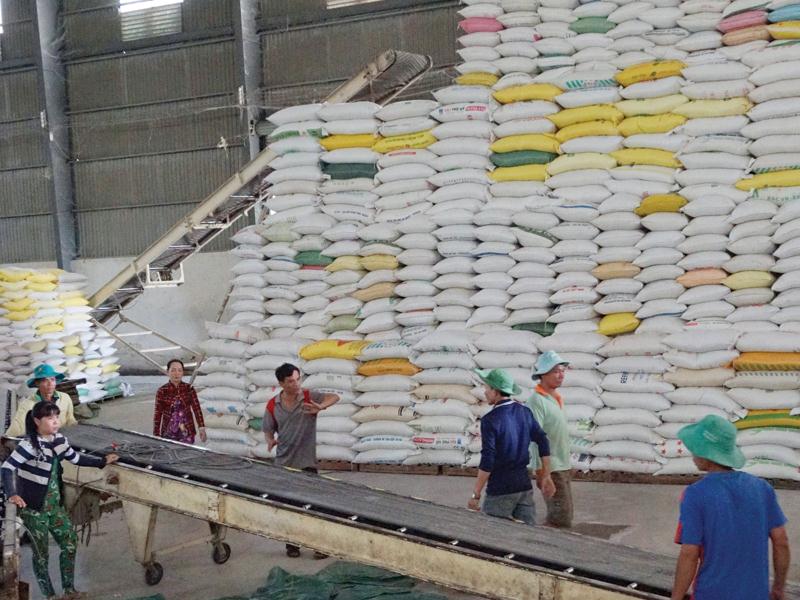Rice is one of the few commodities not affected by the Covid-19 epidemic, as both the export value and output of the first 2 months increased significantly compared to the same period in 2019.

Photo for illustration
According to the General Statistics Office (GSO), in February, Vietnam's rice export turnover reached USD372 million, up 20.5% in value compared to the same period last year, leading to a turnover of USD410 million for 900,000 tons of exported rice in the first two months of this year, a year-on-year increase of 27% in volume and 32% in value.
The Philippines ranked first with 31% of the export market. Bui Thi Thanh Tam, General Director of the Vietnam Northern Food Corporation (Vinafood 1), said the rice export has depended less on the Chinese market over the past year. “In 2019, Vietnam exported only 477,000 tons of rice among over 6 million tons,” she said.
Phan Xuan Que, Vinafood 1’s Chairman of the Members’ Council, expressed optimism about the prospects of some emerging markets in Africa. In 2019, Vietnam's rice export to Ivory Coast reached 583,579 tons, earning USD252.6 million, an increase of 111% in volume and 61% in value compared to 2018. Another market, Ghana, also imported a large amount of Vietnamese rice, at 427,187 tons with a value of USD212.65 million in 2019. This year, African markets may increase their import volume.
Notably, Vietnam's export rice price tended to increase continuously due to great demand from the Philippines and Malaysia. The prices are continuing to narrow the gap with Thai rice, and are higher than Myanmar and Indian rice – the direct competitors of Vietnamese rice.
Talking about rice export in 2020, Pham Thai Binh, General Director of the Trung An Agricultural High Technology Corporation, said that the Covid-19 pandemic is an opportunity for the rice industry to accelerate its export when many places are affected by food shortages; therefore, Vietnam can export more rice. “In addition, the Vietnam - EU Free Trade Agreement (EVFTA) which comes into effect this year will create more competitive advantages for Vietnamese rice to the EU as the tax rate reaches 0%,” he said./.